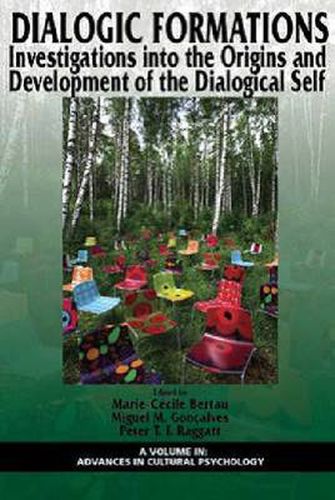Readings Newsletter
Become a Readings Member to make your shopping experience even easier.
Sign in or sign up for free!
You’re not far away from qualifying for FREE standard shipping within Australia
You’ve qualified for FREE standard shipping within Australia
The cart is loading…






This title is printed to order. This book may have been self-published. If so, we cannot guarantee the quality of the content. In the main most books will have gone through the editing process however some may not. We therefore suggest that you be aware of this before ordering this book. If in doubt check either the author or publisher’s details as we are unable to accept any returns unless they are faulty. Please contact us if you have any questions.
This volume understands itself as an invitation to follow a fundamental shift in perspective, away from the self-contained “I’ of Western conventions, and towards a relational self, where development and change are contingent on otherness. In the framework of "Dialogical Self Theory’ (Hermans & Hermans-Konopka, 2010; Hermans & Gieser, 2012), it is precisely the forms of interaction and exchange with others and with the world that determine the course of the self’s development.
The volume hence addresses dialogical processes in human interaction from a psychological perspective, bringing together previously separate theoretical traditions about the "self’ and about "dialogue’ within the innovative framework of Dialogical Self Theory. The book is devoted to developmental questions, and so broaches one of the more difficult and challenging topics for models of a pluralist self: the question of how the dynamics of multiplicity emerge and change over time. This question is explored by addressing ontogenetic questions, directed at the emergence of the dialogical self in early infancy, as well as microgenetic questions, addressed to later developmental dynamics in adulthood. Additionally, development and change in a range of culture-specific settings and practices is also examined, including the practices of mothering, of migration and cross-cultural assimilation, and of "doing psychotherapy’.
$9.00 standard shipping within Australia
FREE standard shipping within Australia for orders over $100.00
Express & International shipping calculated at checkout
This title is printed to order. This book may have been self-published. If so, we cannot guarantee the quality of the content. In the main most books will have gone through the editing process however some may not. We therefore suggest that you be aware of this before ordering this book. If in doubt check either the author or publisher’s details as we are unable to accept any returns unless they are faulty. Please contact us if you have any questions.
This volume understands itself as an invitation to follow a fundamental shift in perspective, away from the self-contained “I’ of Western conventions, and towards a relational self, where development and change are contingent on otherness. In the framework of "Dialogical Self Theory’ (Hermans & Hermans-Konopka, 2010; Hermans & Gieser, 2012), it is precisely the forms of interaction and exchange with others and with the world that determine the course of the self’s development.
The volume hence addresses dialogical processes in human interaction from a psychological perspective, bringing together previously separate theoretical traditions about the "self’ and about "dialogue’ within the innovative framework of Dialogical Self Theory. The book is devoted to developmental questions, and so broaches one of the more difficult and challenging topics for models of a pluralist self: the question of how the dynamics of multiplicity emerge and change over time. This question is explored by addressing ontogenetic questions, directed at the emergence of the dialogical self in early infancy, as well as microgenetic questions, addressed to later developmental dynamics in adulthood. Additionally, development and change in a range of culture-specific settings and practices is also examined, including the practices of mothering, of migration and cross-cultural assimilation, and of "doing psychotherapy’.